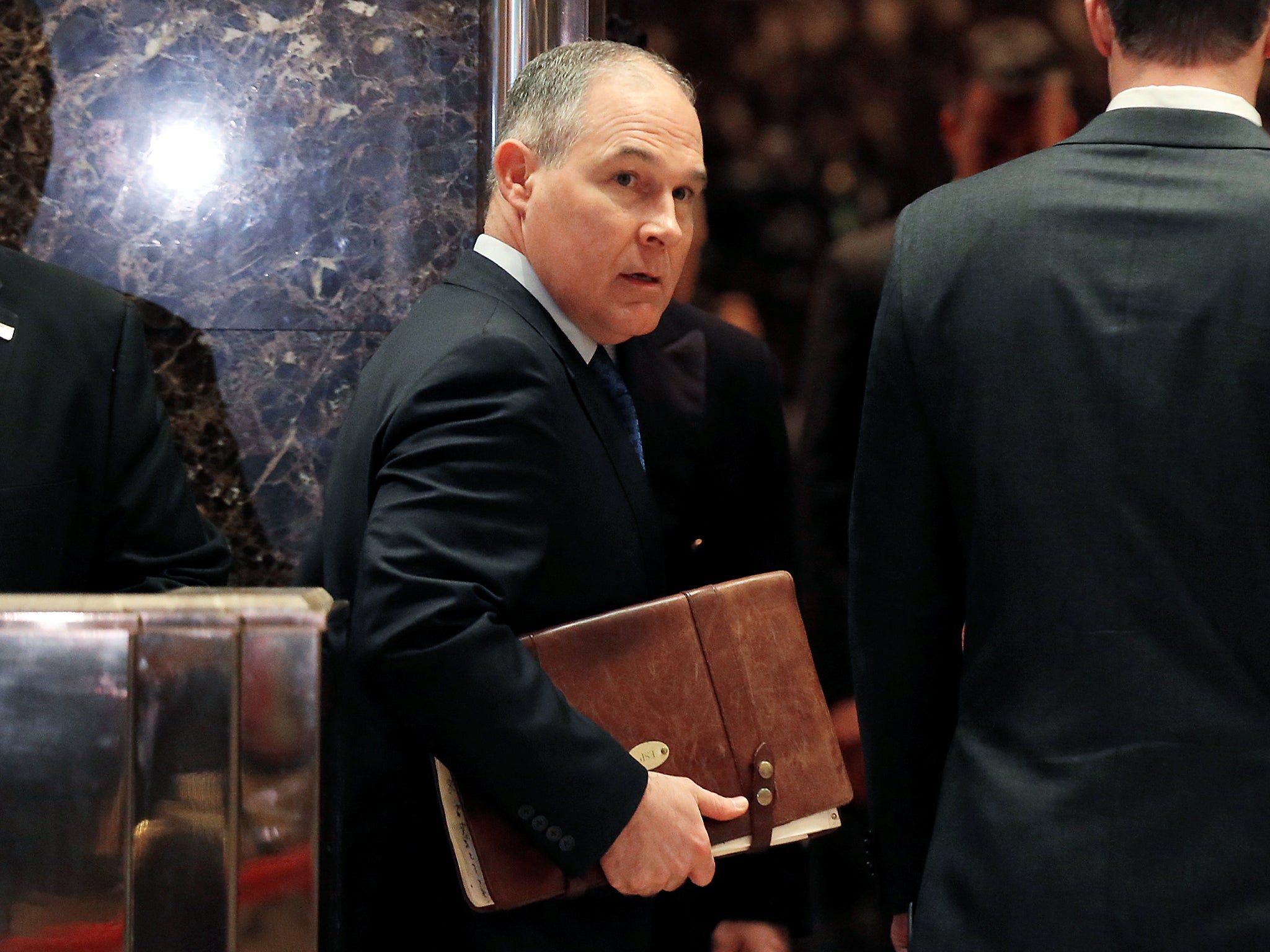The Independent's journalism is supported by our readers. When you purchase through links on our site, we may earn commission.
Financial markets are now betting against the future of the planet. This won't end well
There has been no fundamental readjustment of energy stock prices since the supposedly historic December 2015 United Nations Climate Change deal in Paris


Your support helps us to tell the story
From reproductive rights to climate change to Big Tech, The Independent is on the ground when the story is developing. Whether it's investigating the financials of Elon Musk's pro-Trump PAC or producing our latest documentary, 'The A Word', which shines a light on the American women fighting for reproductive rights, we know how important it is to parse out the facts from the messaging.
At such a critical moment in US history, we need reporters on the ground. Your donation allows us to keep sending journalists to speak to both sides of the story.
The Independent is trusted by Americans across the entire political spectrum. And unlike many other quality news outlets, we choose not to lock Americans out of our reporting and analysis with paywalls. We believe quality journalism should be available to everyone, paid for by those who can afford it.
Your support makes all the difference.Imagine you’re a stock market investor or an analyst whose job it is to advise those investors. How do you put a value on the shares of a publicly listed oil company?
You can estimate the value of the skills of the company’s engineers, managers and other employees. There’s the brand, reputation and the culture of the company to factor in too. There’s also the worth of its equipment and various physical investments to consider.
Yet the bulk of the value of any oil company inevitably derives from its reserves of the black stuff (along with gas and coal) in the ground; assets that are expected to be extracted and sold over time.
But what if you knew that the company would never be able to get these assets out of the ground? What if they were destined to be “stranded”? What would happen to the value of the oil company then?
Some analysts – including the Bank of England – are urging financial markets to start thinking much more seriously about the possibility of tens of trillions of dollars of “stranded assets” in the energy sector and the profound implications for share prices.
Because if governments around the world deliver on their promises to decarbonise their economies and limit the rise in global temperatures this century to 2 per cent above pre-industrial levels, then those assets really can’t see the light of day. Either they will be forbidden from being sold, or there will be no demand for them because we will have new clean means of energy production.
But the lure of short-term profit has a way of obscuring this kind of logic with impenetrable smog. A 1991 public information film produced by the global oil giant Shell has come to light. The video warns explicitly about the extreme weather, floods, famines and climate refugees that are a likely consequence of global warming. The film also noted that the science of climate change was “endorsed by a uniquely broad consensus of scientists”.
Yet none of this stopped Shell, over the following two decades, lobbying against concerted government action to curb carbon emissions and investing heavily in further fossil fuel extraction. “Shell told the public the truth about climate change in 1991 and they clearly never got round to telling their own board of directors,” notes Tom Burke of the environmental think tank E3G.
The lesson of Shell’s film is that it’s naïve to imagine oil companies will take unilateral action that will negatively impact their share price. But what about investors? Might they wise up, force a correction in asset prices and drive a change in corporate behaviour?
That increasingly seems naïve too. At the moment the financial markets are assuming the energy industry’s fossil fuel assets will be extracted and burned, not stranded.
The United Nations Paris Agreement on climate change, signed in December 2015, was hailed by the environmental campaigner Al Gore as the moment when “the community of nations finally made the decision to act”. But there has been no fundamental readjustment of energy stock prices since then. Indeed, the imminent flotation of a tranche of Aramco, the Saudi state oil giant, is widely expected to create the most valuable company on the planet.
The state of politics in the most intensive per capita user of fossil fuels among the large advanced economies – the US – is hardly propitious either. It is true that a proposal for a simple domestic carbon tax has recently been presented to the White House by a group of senior Republican statesmen, including James Baker, George Shultz and Henry Paulson. And Donald Trump’s Secretary of State Rex Tillerson, a former boss of Exxon Mobil, has in the past advocated such a tax, which economists agree would provide an immensely powerful incentive for firms to reduce emissions.
But other elements of the Trump White House and the Republican Party are preparing to roll back the moves taken by President Obama to reduce US carbon emissions through a regulatory clampdown on energy firms. Scott Pruitt, the new head of the Environmental Protection Agency appointed by Trump, is a climate change sceptic who sued the EPA more than a dozen times when he was Oklahoma attorney general. Trump himself has dismissed climate change as a hoax, designed by the Chinese to disadvantage American industry.
Against this background, the markets are betting against substantive government action, whether in America or anywhere else in the world, to curb climate change. And they are also betting, indirectly, against the habitable future of the planet.
Join our commenting forum
Join thought-provoking conversations, follow other Independent readers and see their replies
Comments